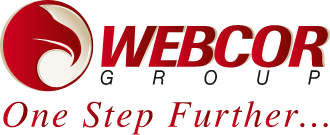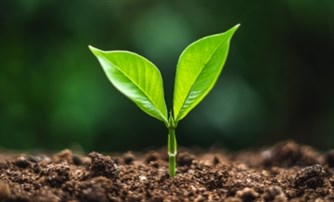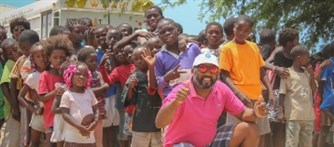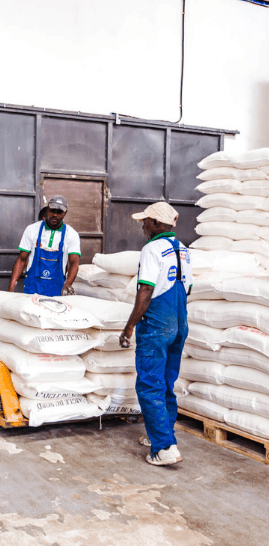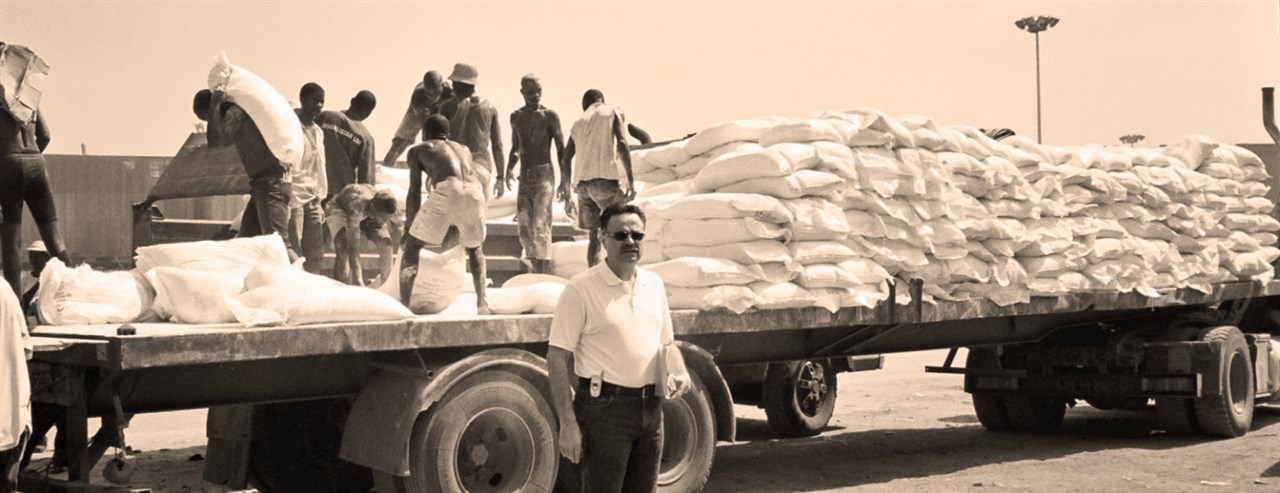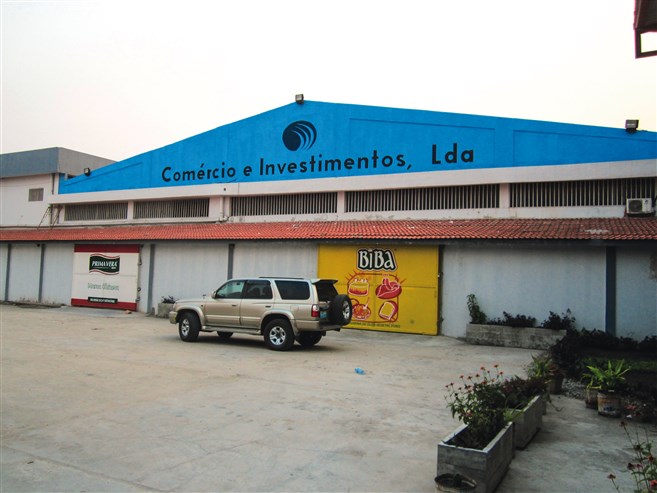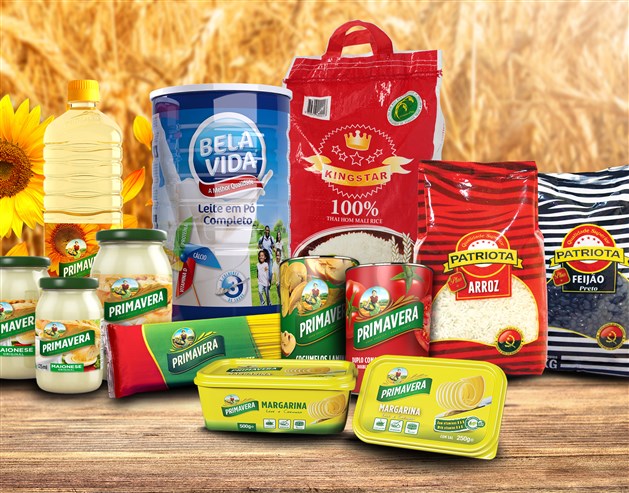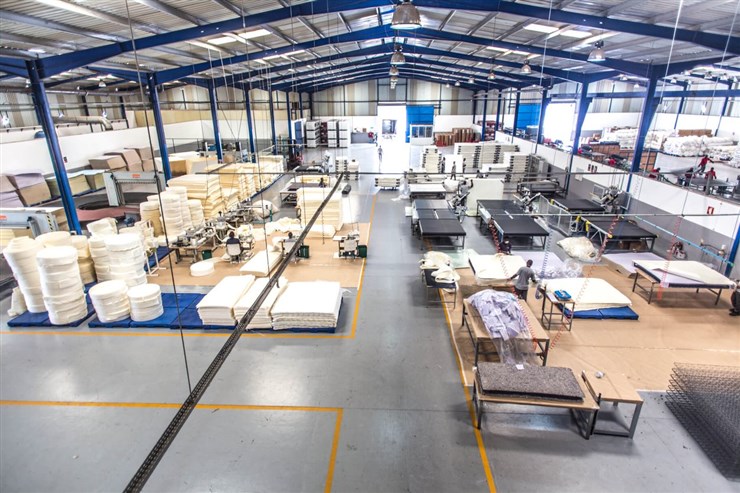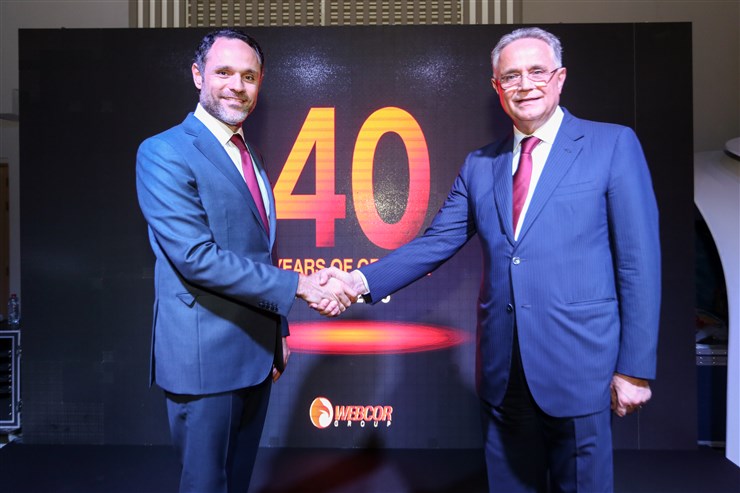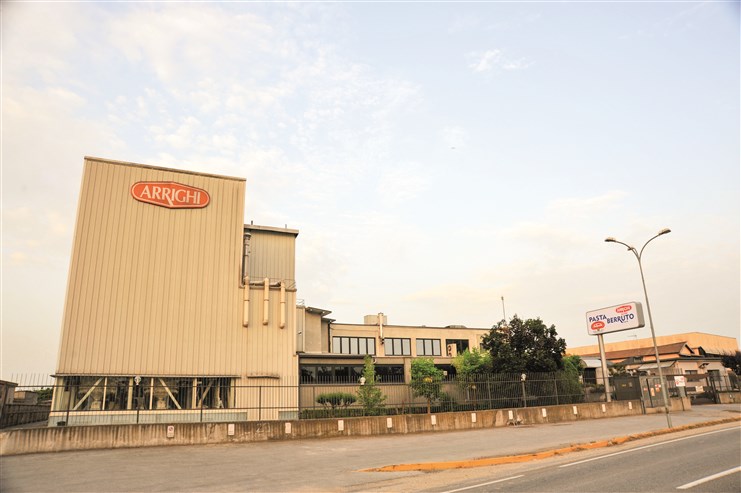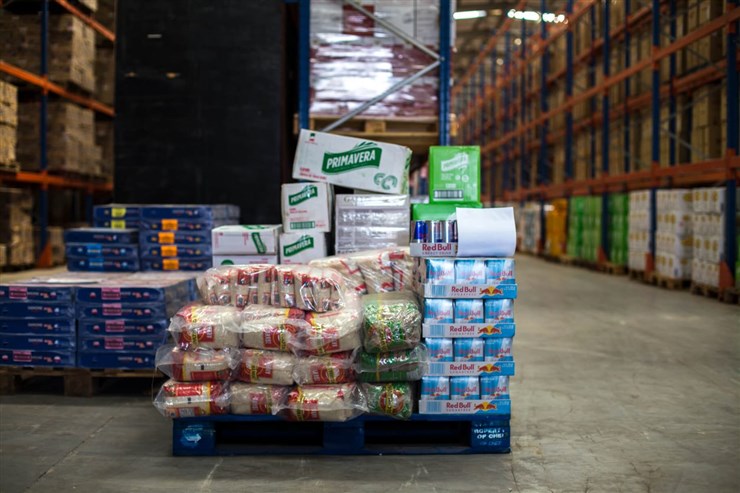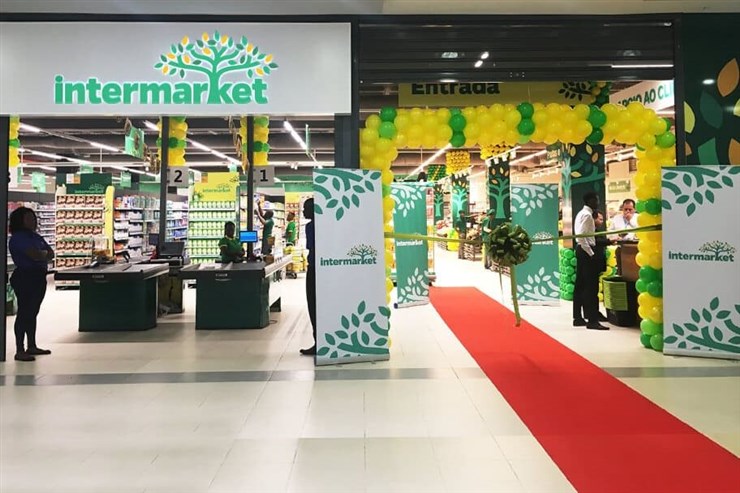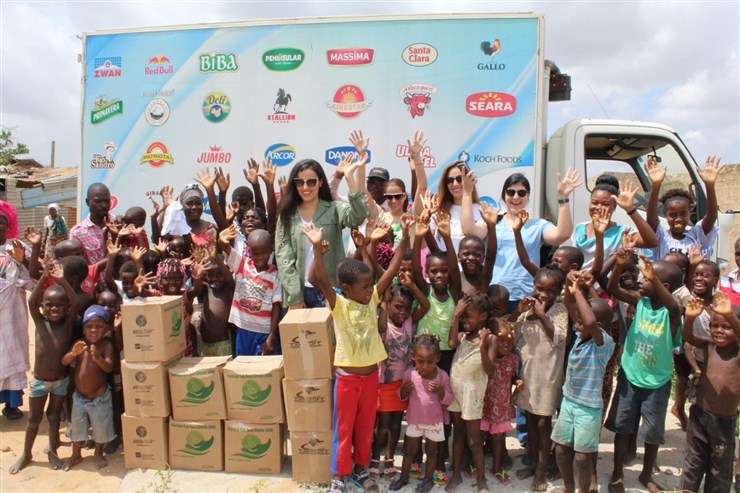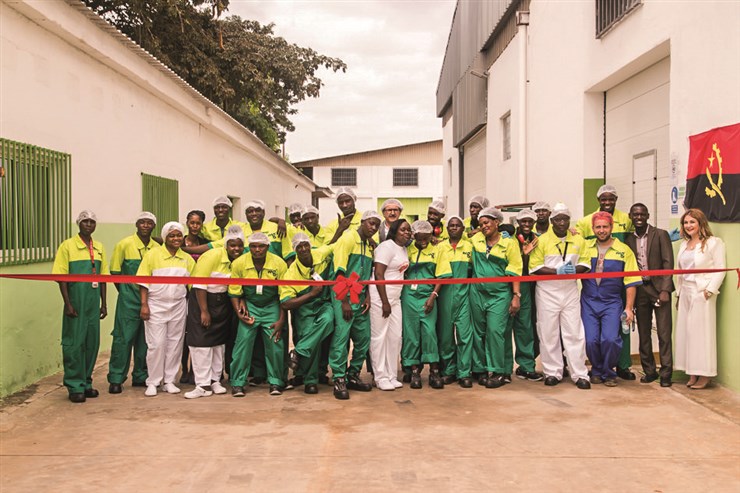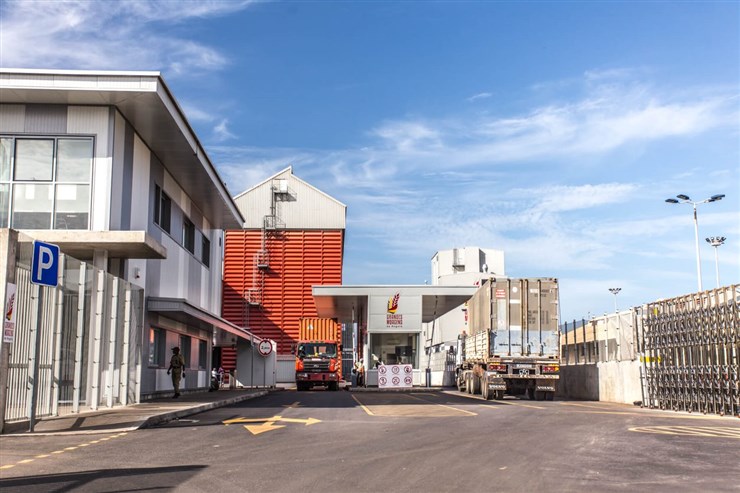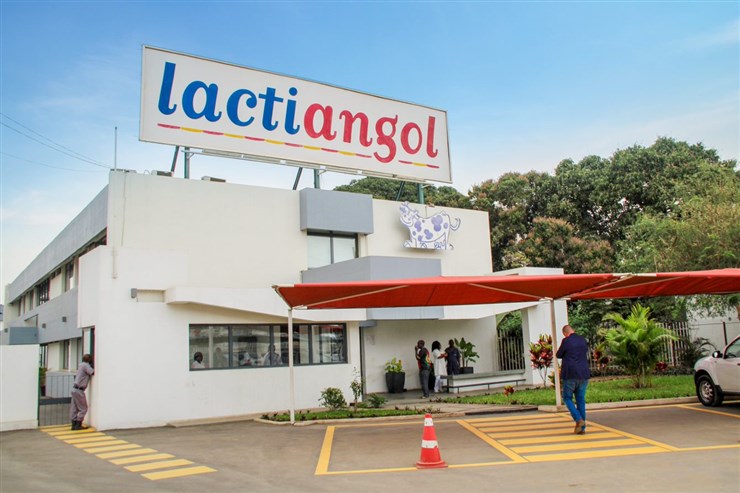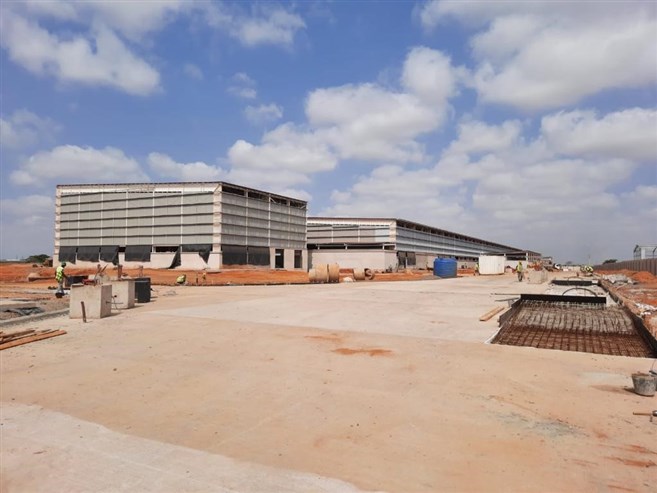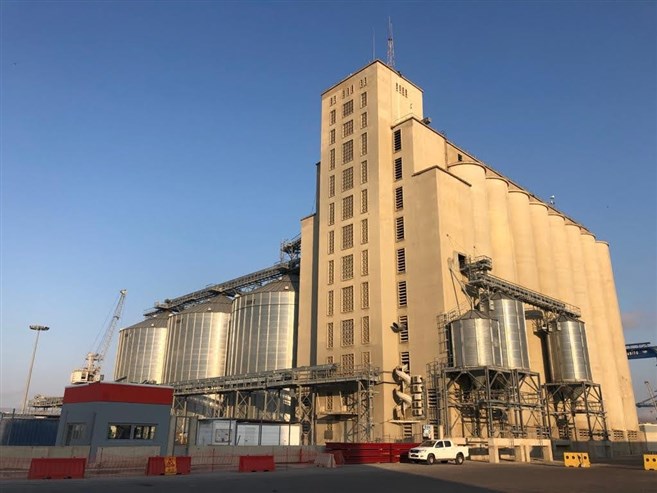-
1976
Ali Nehme Nesr left his hometown in Lebanon and migrated to Africa to fulfill his dream to set up his own business. He started his first business venture when he established Starco, a textile shop in the former state of Zaire. He immediately set out to establish a reputable import and wholesale business in the country under the name Webcor Group.
-
1981
Success led to further expansion and diversification, expanding the business to the manufacturing sector.
Within five years, he, along with his brothers, established Actiza, a production facility that manufactured shoes, luggage, and other basic-need consumer products.
This set the company on a path of growth, leading to more than 21 retail stores and factories being set up within a decade.
-
1992
Spurred by difficulties the DRC faced, Ali moved his business to neighboring Angola in 1991. With a new base established in the capital of Luanda, Ali, and his brother Hussein, launched AngoAlissar, a company created to meet the growing demand for high-quality wheat and FMCGs.
Twenty-five years later, in 2017, AngoAlissar established itself as a leading importer of quality goods with operations across 11 provinces.
-
1993
Webcor launches Nextra, the Group's first trading arm and its first operation in Europe. Based in Belgium, Nextra leveraged its knowledge and presence in the global market to gain access to the best materials and products. In turn, this allowed them to provide high-quality, low-cost goods to African consumers. It was then that Webcor Group was operating across all fronts of the value chain: trading, shipping, manufacturing, branding, distribution, and retail.
-
1998
Building on its growing presence in Africa, the Group also began to expand into other regions in the continent. Two distribution networks, Lanaco in DRC and Comércio e Investimentos in Mozambique, were launched. These new ventures professionalized the distribution system and enabled Webcor to reach a higher number of consumers in the continent.
-
2001
This year marked a phase of significant growth and expansion for Webcor's portfolio of brands. Aigle du Nord and Bella Vida, for example, are easily differentiated and positioned in the consumer's mind as leading brands for the past two decades.
-
2003
The Group acquires IMEX, a company that saw Webcor's first considerable foray into the industry. IMEX produces a wide range of items specialized in the manufacturing of products using the rotational molding process (such as PVC and HDPE pipes), as well as in the production of fiber bags, foam and spring mattresses, and pillows.
-
2005
Wissam Nesr, son of Ali, was appointed as CEO of Webcor. His mission was complex, but clear: leverage the unique competencies and skills that the Group has mastered overtime to develop new business opportunities (core business, adjacent or non-related businesses) and maintain the family legacy and core values.
-
2007
Webcor acquires 60% of Pasta Berruto, one of the world's leading pasta producers. This positioned the Group as an international player in the provision of leading food products, further strengthening its retail and distribution operation.
-
2011
Webcor launches Intermarcas, an expansive distribution operation with over 30 delivery trucks and more than 3,000 points of sale. Intermarcas currently distributes Webcor brands, along with global FMCG brands.
-
2012
Webcor establishes its retail arm with the launch of Ora Invest. Ora currently owns four supermarkets in Angola, with plans to expand further throughout the country. Most notably, it acquired the established Intermarket, a reputable chain of supermarkets.
-
2014
Webcor officially articulates its "Growing Together" strategy. In essence, it means that while Webcor grows as a company, it will actively seek to help its people, communities, and environments to grow wherever it operates.
-
2016
Webcor launches its vinegar and table sauce factory, with the aim of providing high-quality household condiments to the local market.
-
2017
The success of the last 40 years culminated with the opening of Grandes Moagens de Angola, one of the continent's largest wheat flour mills. With an annual production capacity of 320,000 metric tons, the mill transformed Webcor into one of the continent's most prominent agro-industrial groups, fulfilling the company's early aspirations of narrowing the gap between the poor and the wealthy, all by using improved food security.
-
2018
Webcor acquires Lactiangol, a well-established dairy manufacturer in Angola. By putting high-quality dairy products such as UHT milk, flavored milk, yogurt, and cheeses directly in the hands of consumers, the Group has taken another step toward expanding its food brand business as it celebrates its 40th year as a company.
Webcor's growth reflects four decades of the perseverance of its leadership and the skillsets of its workers.
-
2019
In a partnership with the Argentinian confectionary giant Arcor, Webcor Group will manufacture candy and cookies in Angola, including the world-famous Bon-o-Bon. The new formed company, Dulceria Nacional, is expected to start producing by 2022 and products marketed to several neighboring countries.
-
2020
The company begins forging a new way forward with a renewed focus on the whole value chain.
Unlocking the next wave of business innovation and growth is only possible by centering our strategy in creating shared value. Webcor intends to develop a flour mill in Lobito, reinforcing local production and generating thousands of jobs across the region. More joint ventures and alliances are also part of the business growth strategy.
